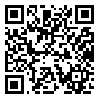Mon, Feb 2, 2026
| فارسی
Volume 22, Issue 3 (Autumn 2020)
Advances in Cognitive Sciences 2020, 22(3): 123-136 |
Back to browse issues page
Download citation:
BibTeX | RIS | EndNote | Medlars | ProCite | Reference Manager | RefWorks
Send citation to:



BibTeX | RIS | EndNote | Medlars | ProCite | Reference Manager | RefWorks
Send citation to:
Eskandari E, Amiri S, Ghamarani A. The effect of optimistic attributional style training on self-efficacy of normal and dyslexic boys. Advances in Cognitive Sciences 2020; 22 (3) :123-136
URL: http://icssjournal.ir/article-1-915-en.html
URL: http://icssjournal.ir/article-1-915-en.html
1- . MA in Clinical Psychology, Department of Psychology, Faculty of Education and Psychology, University of Isfahan, Isfahan, Iran
2- Professor of Department of Psychology, Faculty of Education and Psychology, University of Isfahan, Isfahan, Iran
3- Assistant Professor of Department of Children with Special Needs, Faculty of Education and Psychology, University of Isfahan, Isfahan, Iran
2- Professor of Department of Psychology, Faculty of Education and Psychology, University of Isfahan, Isfahan, Iran
3- Assistant Professor of Department of Children with Special Needs, Faculty of Education and Psychology, University of Isfahan, Isfahan, Iran
Abstract: (3979 Views)
Introduction
: Self-efficacy is one of the most important cognitive abilities in which defect leads to failure. The purpose of this study was to investigate the effect of optimistic attribution style training on self-efficacy of normal and dyslexic boys of fourth grade in Isfahan city.
Methods: The study design was experimental with pre-test, post-test, follow-up and control group. After screening based on Cattell's Intelligence Test (1973), Seligman's Children Attribution Style Questionnaire (1984), Bazrafshan Moghadam Dyslexia Checklist (1997) and Kormi Nouri and Moradi Reading and Dyslexia test (2005), from the population of fourth grade male students in Isfahan city, 60 students were selected in a multi-stage random manner. Thirty normal students were randomly assigned to the experimental and control groups and 30 dyslexic students were randomly assigned to the experimental and control groups. After performing a pre-test including bandura's self-efficacy questionnaire (2006) and presenting the optimistic attributional style training, post-test and follow-up test were performed.
Results: The results of the analysis of variance with repeated measures showed that optimistic attribution style training was effective on the general self-efficacy and social skills and emotional reactions subscales of the experimental groups in post-test and one-month follow-up test )P<0.05). This training was effective on the academic self-efficacy of the normal experimental group and the reading self-efficacy of the experimental dyslexic group in both post-test and follow up (P<0.05), but it was not effective on the reading self-efficacy of the normal experimental group and the academic self-efficacy of the experimental dyslexic group in post-test and follow up (P>0.05).
Conclusion: Optimistic attribution style training can improve normal and dyslexic boys’ self-efficacy, and this program can be used to improve children's self-efficacy.
|
|
Methods: The study design was experimental with pre-test, post-test, follow-up and control group. After screening based on Cattell's Intelligence Test (1973), Seligman's Children Attribution Style Questionnaire (1984), Bazrafshan Moghadam Dyslexia Checklist (1997) and Kormi Nouri and Moradi Reading and Dyslexia test (2005), from the population of fourth grade male students in Isfahan city, 60 students were selected in a multi-stage random manner. Thirty normal students were randomly assigned to the experimental and control groups and 30 dyslexic students were randomly assigned to the experimental and control groups. After performing a pre-test including bandura's self-efficacy questionnaire (2006) and presenting the optimistic attributional style training, post-test and follow-up test were performed.
Results: The results of the analysis of variance with repeated measures showed that optimistic attribution style training was effective on the general self-efficacy and social skills and emotional reactions subscales of the experimental groups in post-test and one-month follow-up test )P<0.05). This training was effective on the academic self-efficacy of the normal experimental group and the reading self-efficacy of the experimental dyslexic group in both post-test and follow up (P<0.05), but it was not effective on the reading self-efficacy of the normal experimental group and the academic self-efficacy of the experimental dyslexic group in post-test and follow up (P>0.05).
Conclusion: Optimistic attribution style training can improve normal and dyslexic boys’ self-efficacy, and this program can be used to improve children's self-efficacy.
Type of Study: Research |
Received: 2019/04/3 | Accepted: 2020/06/8 | Published: 2020/10/1
Received: 2019/04/3 | Accepted: 2020/06/8 | Published: 2020/10/1
Send email to the article author
| Rights and permissions | |
 |
This work is licensed under a Creative Commons Attribution-NonCommercial 4.0 International License. |






